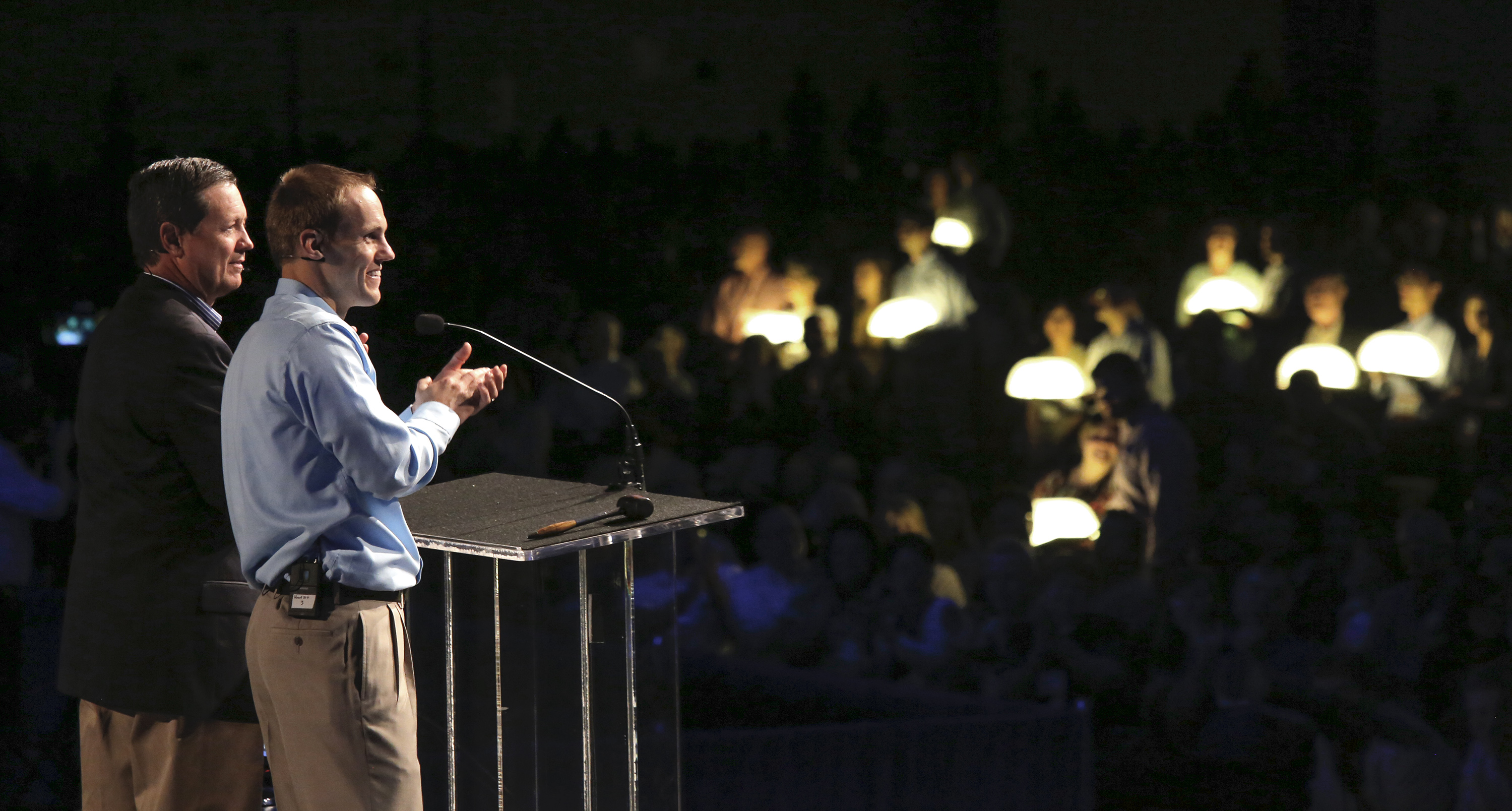
RICHMOND, Va. (BP) — A reduction of 600-800 International Mission Board staff and field personnel should not decrease the board’s Gospel impact worldwide, IMB President David Platt told members of the media during an Aug. 27 conference call.
“Even if our income from churches were to double over the next year … we would still have a cap on our ability to send a certain number of full-time, fully supported church planters,” Platt said. IMB leaders “want to take that cap off” and “consider all of the different avenues that God created in His sovereign grace for multitudes more people to go” — including business professionals funded by their secular employers, students funded by scholarships to international universities and retirees funded by their savings.
Platt’s press conference, which also included the IMB’s executive vice president, Sebastian Traeger, occurred following a town hall meeting with missionaries and staff at which IMB leaders announced a plan to balance the organization’s budget by the end of 2017. Phase one of the plan will involve offering a voluntary retirement incentive to eligible employees. Phase two will include an opportunity for other employees to “voluntarily transition into work outside the IMB,” Platt said. The issue of potential layoffs will be addressed “when necessary.”
IMB leaders will consider the ramifications of full-time missionary reduction for work among specific people groups around the globe based on the outcome of voluntary retirements and resignations, Platt said.
Personnel reduction is a “difficult” issue “to communicate with our IMB family,” Platt said. “These aren’t just figures. These are faces. These are brothers and sisters who have spent and are spending their lives in various capacities to spread the Gospel among those who have never heard it.”
Traeger said no option other than personnel reduction represented a viable method to bring expenses in line with revenue. Suspending or reducing missionary appointments as well as employing alternative funding models are not “feasible” courses of action, he said. Platt noted that personnel expenses account for about 80 percent of the IMB’s budget.
For some departing employees, Platt mentioned the possibility of transitioning to work with the North American Mission Board, but he said leaders of the two mission entities have not discussed it.
“It is encouraging to us as leadership as we think through the difficulties with a step like this, but also the opportunities that are going to open up [for] work among unreached peoples in North America and work in churches in North America,” Platt said. “I trust in all kinds of ways that God will creatively and sovereignly lead and direct 600-800 people in the days to come.
“And because of our ongoing and growing partnership with NAMB, I’m certain there are possibilities that may unfold along those lines, [but] we don’t have a formal plan for integrating certain people into certain positions with NAMB,” Platt said.
Though IMB expenditures have exceeded revenue by $210 million over the past six years, according to reports from IMB leadership, the anticipated spending adjustment “is not in any way a reflection of a lack of accountability or responsibility” among past IMB leaders, Platt said. “Previous leadership put in place a plan to draw down the number of missionaries on the field over time in a way that we have now realized is not getting us to where we need to be as quickly as maybe once thought.”
Traeger said budget shortfalls have been the result of revenue projections that exceeded actual income, including projections related to the Lottie Moon Christmas Offering.
Data reported in Baptist Press and Southern Baptist Convention Annuals indicates IMB budgets projected Lottie Moon revenue equivalent to the goal even when the previous year’s Lottie Moon revenue was millions less.
For example, the projected 2015 Lottie Moon income is $180 million despite a 2014 Lottie Moon offering of $153 million. The projected 2014 Lottie Moon revenue was $175 million despite a 2013 offering of $154 million. Since 2007, projected Lottie Moon revenue in IMB budgets has exceeded Lottie Moon receipts by more than $170 million.
Traeger said Lottie Moon receipts have increased by an average of 0.6 percent annually over the past four years.
Until now, the shortfall has been overcome by using reserve funds and selling property, but that plan is no longer feasible, Platt said.
The IMB’s unrestricted net assets, which include contingency reserve funds, went from more than $256 million in 2007 to $98 million in 2014, with a low of $56 million in 2011, according to audited IMB financial statements as reported in SBC Annuals.
Platt said he wants to keep disclosure of IMB financial data “as simple as possible but also as transparent as possible.”
In related news, NAMB President Kevin Ezell applauded the IMB’s leadership team in a statement to BP.
“David [Platt] and his leadership team are taking steps that will put IMB and Southern Baptists on a strong footing for our missions efforts,” Ezell said. “The right decisions are not always the easy ones but the next generations of missionaries and those they reach will be grateful. It’s time to look forward and move into the future which I believe, with David’s leadership, will be bright and full of God’s blessings.”


















